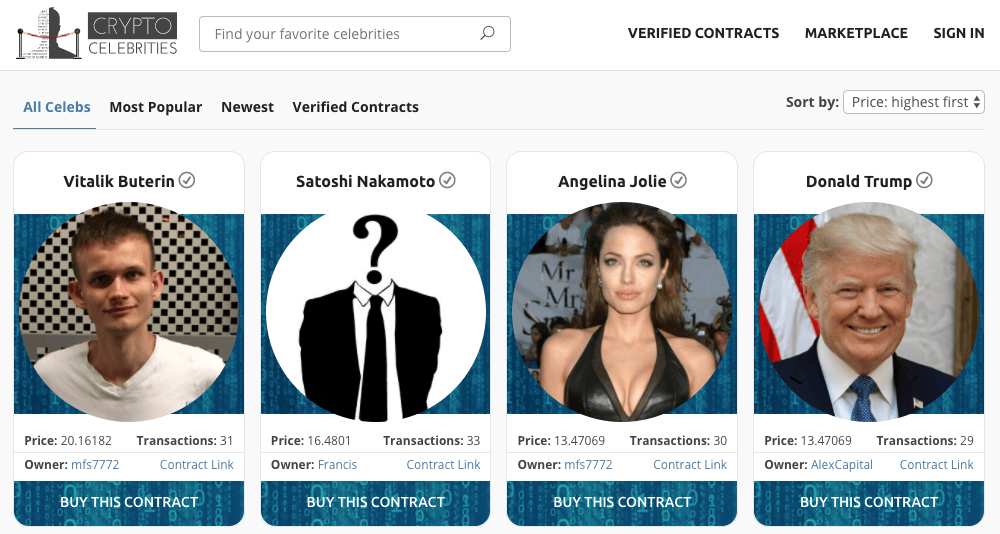
CryptoCelebrities is the latest blockchain-based virtual game surfing on the “cryptocollectible” craze. The new game saw nearly one million dollars worth of ether transacted in the first 24 hours since its launch, according to an email written by one of the game’s developers.
Built on Ethereum, CryptoCelebrities lets users buy, sell and trade celebrity smart contracts, like collectibles, using blockchain technology.
Just like each individual coin, each personality is linked to one, and only one, smart contract token on the game’s blockchain. Celebrity smart contracts are visible on the Ethereum blockchain, and are purchased with ether. Every time a user buys a celebrity smart contract, it automatically doubles in value.
The starting price of any contract is 0.0001 ether, or about 10 cents. After the first sale, the price goes up to 0.0002. A few transactions later, the contract can be priced at the equivalent of thousands of dollars and more.
Ethereum creator Vitalik Buterin is currently the most expensive smart contract at a price of over 20 ETH, or about 20,000 USD. The smart contract has been traded 31 times. Bitcoin’s anonymous creator Satoshi Nakamoto is the second most expensive celeb, now worth more than 16 ETH, or about 16,000 USD.
According to the CryptoCelebrities website, celebs themselves can get involved. If they provide an endorsement, they are entitled to a percentage on each sale of their contract.
CryptoCelebrities is still in beta, and the game’s creators said they were “actually trying to keep things on the down low” before the big release on January 25th.
The cryptocollectible concept was initiated by CryptoKitties, a game introduced in December 2017, which rapidly skyrocketed in popularity with rare kitties going for well over US$100,000.
At some point, CryptoKitties was the largest decentralized application on the Ethereum protocol, accounting for more than 13% of the network’s transactions.
The craze peaked to the point that initial coin offerings (ICOs) could not launch on the Ethereum protocol due to network congestion caused by the sale and trading of the digital kittens.

